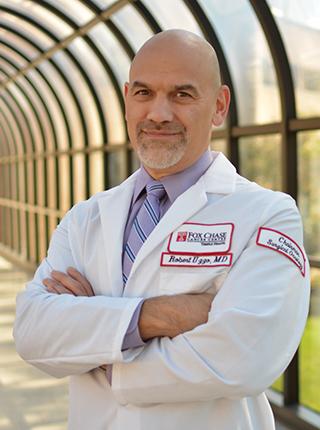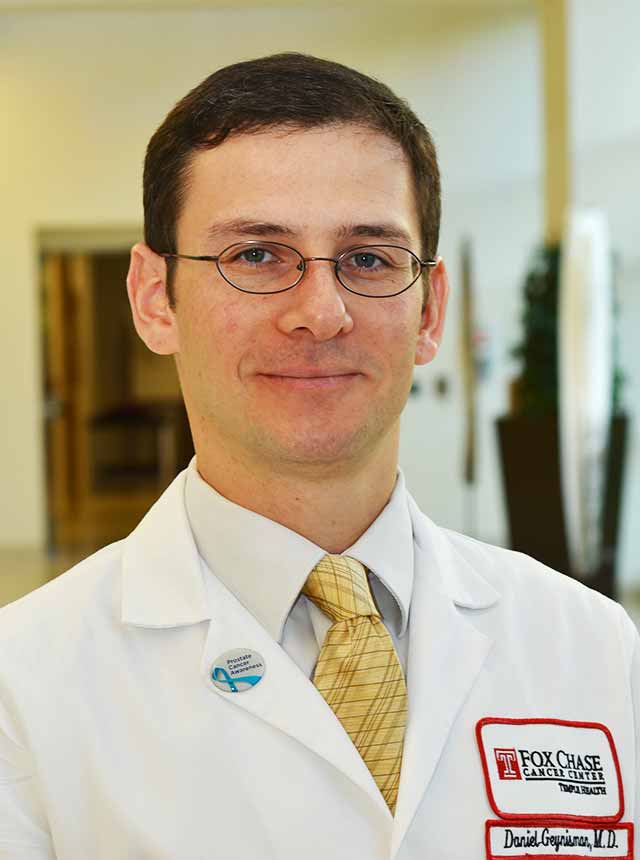PHILADELPHIA (April 21, 2020)—A clinical trial headed by Fox Chase Cancer Center physicians has found that patients with certain common benign, spontaneous kidney tumors saw a marked decrease in tumor volume after being treated with the drug everolimus, also known by its brand name, Afinitor.
Everolimus is approved by the Food and Drug Administration for patients who have tuberous sclerosis-associated benign tumors of the kidney, also known as angiomyolipomas. But until this study, there were no data on whether the drug was effective and safe for patients with the tumors who don’t have the genetic disorder.

“The study has shown even if the patient doesn’t have the condition, the medication generally decreases tumor size by about 50 percent,” said senior author Robert G. Uzzo, MD, MBA, FACS, chair of the Department of Surgical Oncology, and a member of the Molecular Therapeutics Program. The study was conducted with researchers from several other cancer centers across the country.
Angiomyolipomas are benign kidney tumors that can be sporadic or come about as a result of tuberous sclerosis. These tumors can spontaneously bleed as they grow and can sometimes be life threatening, Uzzo said.
“We know everolimus shrinks the angiomyolipomas of the kidney in patients with tuberous sclerosis, decreases the risk of bleeding, and decreases the risk to the kidneys, because many of these patients no longer need surgery and no longer need treatment for these tumors after the shrinkage,” Uzzo said. “The question this trial asked, for the first time is, ‘Can you give this medicine to people who have these tumors but that don’t have tuberous sclerosis, which is a far more common condition?’”
The trial was sponsored by Novartis Pharmaceuticals, which makes everolimus. The researchers observed patients at five centers with sporadic angiomyolipomas greater than 3 centimeters who were candidates for surgical procedures. Of the patients who completed treatment, over 55 percent had a greater than 25 percent reduction in tumor volume at four months and 71 percent had a similar volume reduction six months.

“The trial met both its efficacy and toxicity stopping rules,” said lead author Daniel M. Geynisman, MD, assistant professor in the Department of Hematology/Oncology. “That is, patients’ tumors shrank considerably, but the drug also led to a relatively high discontinuation rate in this group of otherwise healthy patients with a benign condition. As opposed to patients with advanced malignant cancers, these patients were much less willing to tolerate even relatively mild side effects, and this has to be taken into account when considering this as a therapeutic option.”
Uzzo said the results could affect patients who are difficult to treat, such as those with large angiomyolipomas, those with other kidney problems, or those who are unfit for surgery.
“To give them this medication even for a short period might shrink the tumor enough to make it easier to treat, or perhaps you could intermittently give the medication as necessary,” said Uzzo. “We were happy to lead the first trial in this group of patients given our expertise in the management of kidney tumors.”
The study, “Sporadic Angiomyolipomas (AMLs) Growth Kinetics While on Everolimus (SAGE): Results of a Phase II Trial,” was published in The Journal of Urology, published by Wolters Kluwer.